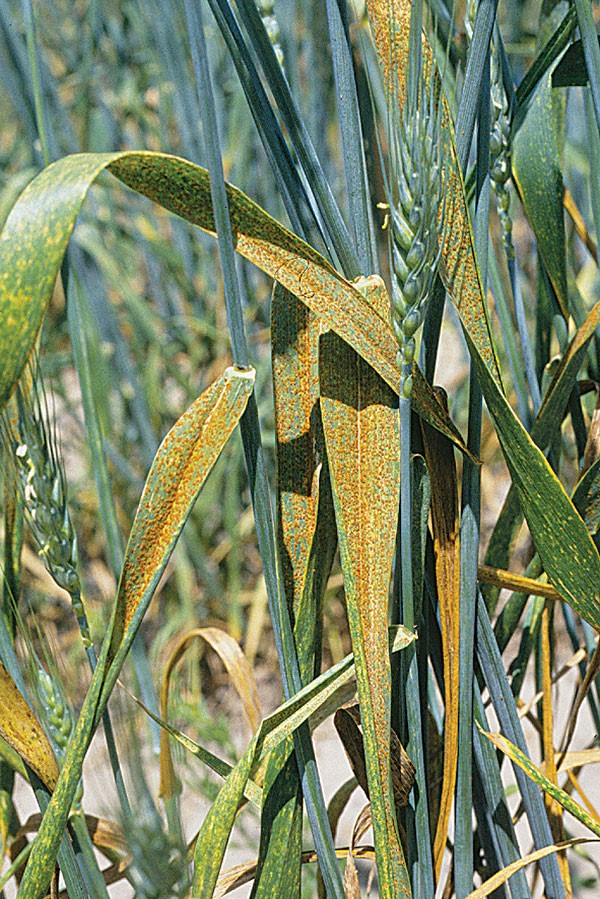INP-WealthPk
Arooj Zulfiqar
An urgent action is needed to effectively deal with the significant threat that rust poses to wheat production in Pakistan. Talking to WealthPK, Scientific Officer at the National Agricultural Research Centre (NARC) Muhammad Bilal Ashraf Khan said, “Rust, a fungal wheat disease, has become a major concern for the farmers in Pakistan, causing significant losses to crop yield and quality.”

He said, “Rust is caused by a group of fungi belonging to genus Puccinia, which infects wheat plants and causes significant damage to their leaves, stems, and grains. The fungus spreads through wind-borne spores, which can travel long distances and infect large areas of wheat fields within a short period.”
“The impact of rust on the wheat plants is devastating, reducing yields by up to 30% and in severe cases by 50%. The disease also affects the quality of wheat, making it less nutritious and of less market value. Moreover, the spread of rust can lead to food insecurity, as wheat is a staple crop for millions of people in Pakistan and other countries,” he continued.
“There are several factors contributing to the spread of rust in Pakistan, including the use of susceptible wheat varieties, favorable weather conditions, and lack of effective control measures. In recent years, the emergence of new virulent strain of rust has further exacerbated the problem, making it even more challenging to manage the disease.”
Mr. Bilal suggested, “To combat rust, the farmers and researchers must work together to develop effective strategies for disease management. One approach is to use resistant wheat varieties that can tolerate rust infection without significant yield losses.” “Several such varieties have been developed in recent years, but their adoption by farmers has been slow due to various reasons, including the lack of awareness, high cost, and limited availability.” He said, “The disease attacks the leaf and affects the food formation process. In case of severe attack, it damages the fruit. So, in case of attack, the diseased plant should be uprooted and buried.”
“The farmers should also apply anti-fungus pesticides in consultation with the agriculture officials, but this method has limitations, as it can be expensive, environmentally harmful, and may lead to the development of fungicide-resistant strains of the fungus. Moreover, improper use of fungicides can adversely affect human health and the environment.” So, if the disease is in its initial phase, the farmers should only cut the diseased leaf and bury them but should wear gloves before doing so.
Credit: Independent News Pakistan-WealthPk




